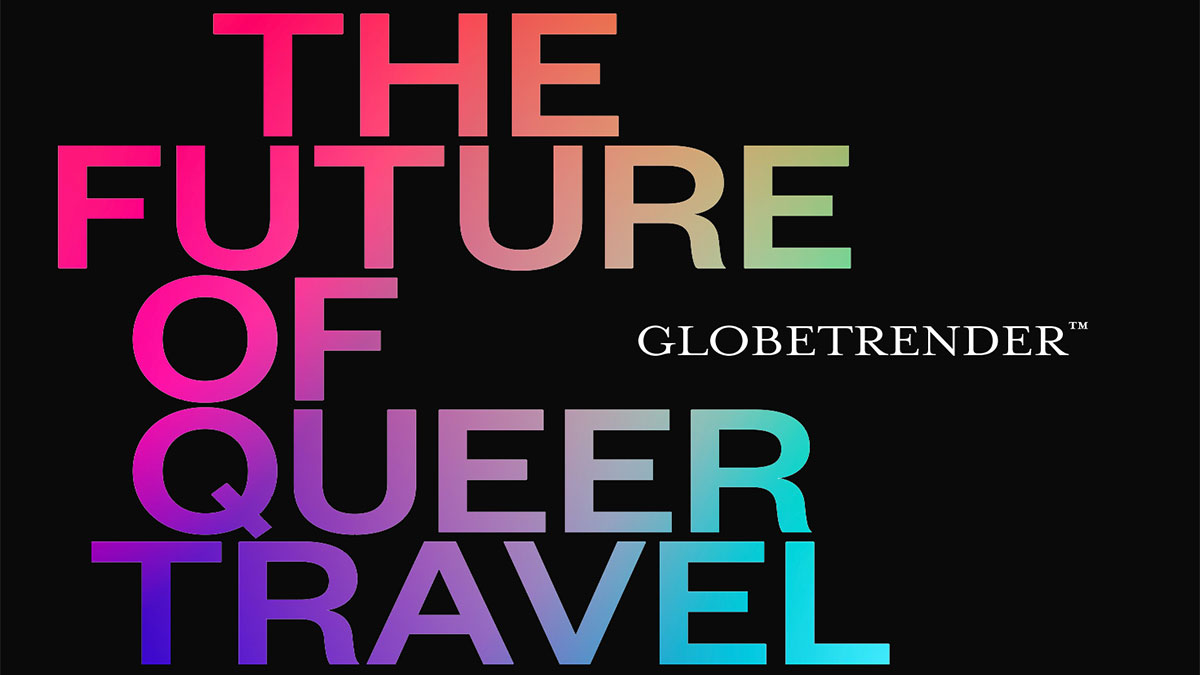8 Emerging Queer Travel Trends
In case you missed it, Globetrender released its report, The Future of Queer Travel! The report identifies eight trends that will shape the future of travel for the LGBTQ+ market, including Queer Family Travel, Limelight Gaycations, Rainbow Rebellions, Polydays, and Pride Power. Even though the report was released this year, these are queer trends and travel experiences that will continue to flourish for years to come.
The Future of Queer Travel report, which includes case studies, was a personal project that the Founder, CEO, and Editor of Globetrender, Jenny Southan, took more than three years to get off the ground.

Selected as one of Attitude magazine’s “LGBTQ+ Trailblazers for 2023,” Southan secured sponsorship from Contiki, Meet Boston, and Discovery New England, who came on board as partners for the unique queer study that looked at the LGBTQ+ travel market and the power of the ‘pink dollar’.
“Over the past 10 years, the queer travel market has grown enormously – when travel was at its peak before the pandemic, travel spending from queer people reached $218 billion worldwide. By 2023, experts predict that travel spending by queer travelers could reach $586.5 billion,” said Southan.
Based on The Future of Queer Travel report, these are eight travel trends that have emerged in the LGBTQ+ travel market.
8 Emerging Queer Travel Trends
Queer Family Travel
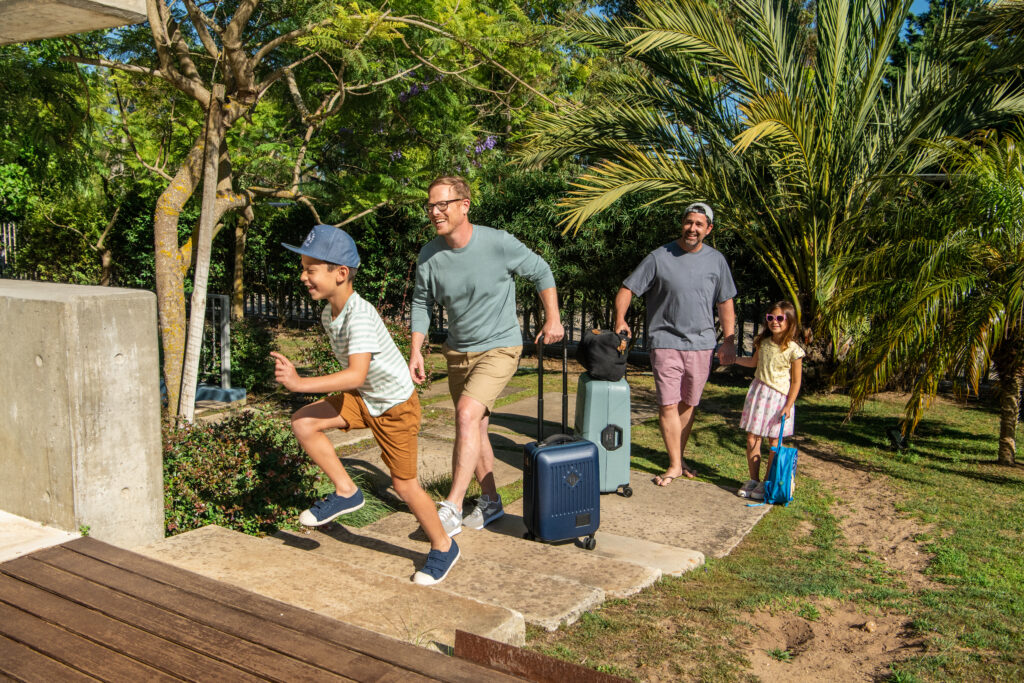
In some of the most progressive countries, queer families have only been recognized as “legal” for about 20 years. That means that Millennials are the first generation to embrace queer parenthood in a socially acceptable way. Today, about 35 countries allow for same-sex adoption. Even though LGBTQ+ parents need to be more discerning about where they go with their children.
Darren Burn, founder of luxury tailor-made company Out of Office, says trending queer family destinations include Greece, Costa Rica, Portugal, and Mexico. Burn works with safe and welcoming partners that are also essential with requests to visit challenging destinations such as the Maldives, where homosexuality is illegal. Recently, he booked a trip for an LGBTQ+ family that included a trans teenager.
“We ensured the family was met at the aircraft and taken through a private immigration line with an Out of Office approved officer who was welcoming and understanding. The family was able to clear customs without any uncomfortable questions, and were at their resort in no time,” he said.
Put a Ring on It Trips

Whether traveling for an engagement, wedding, or honeymoon, queer travelers are seeking out welcoming destinations to celebrate their love. There are 34 countries where gay marriage is currently legal, including Andorra, Cuba, Malta, South Africa, and Taiwan. So, “Put a Ring on It Trips” will grow in significance as a queer travel trend and destinations will rightly benefit from a surge in romance-based vacations where gay marriage is legal. And that means that tying the knot in a country where celebrating queer love is more acceptable will be a big incentive for gay couples to travel internationally.
Rainbow Rebellions
A rising number of defiant queer travelers are willing to modify their behavior in public places to explore parts of the world that are not officially welcoming of LGBTQ+ people. A prime example is journalist Ainara Tiefenthäler’s New York Times article, “Being Gay Is Illegal in Many Countries. LGBTQ+ Travellers Are Going Anyway.” A romantic island getaway in the Maldives; a safari in Kenya; and a visit to the pyramids in Egypt are all examples of travel experiences that LGBTQ+ travelers are adding to their bucket lists with help from queer-run travel companies.
Globetrender’s report states, “a lot of privileged Westerners (especially Millennials), for whom travel has felt like a right, being queer is not enough of a reason not to go somewhere. A sense of defiance combined with entitlement motivates them to book ‘Rainbow Rebellions’ to destinations such as the Middle East, Africa, Jamaica, Malaysia, and China… places where local laws tend to be enforced more on local people than foreign tourists.” The report notes that the United Arab Emirates is an example of a place where it is taboo to be gay (subject to severe punishment), but there is also a ‘thriving’ unadvertised gay scene.
Pride Power
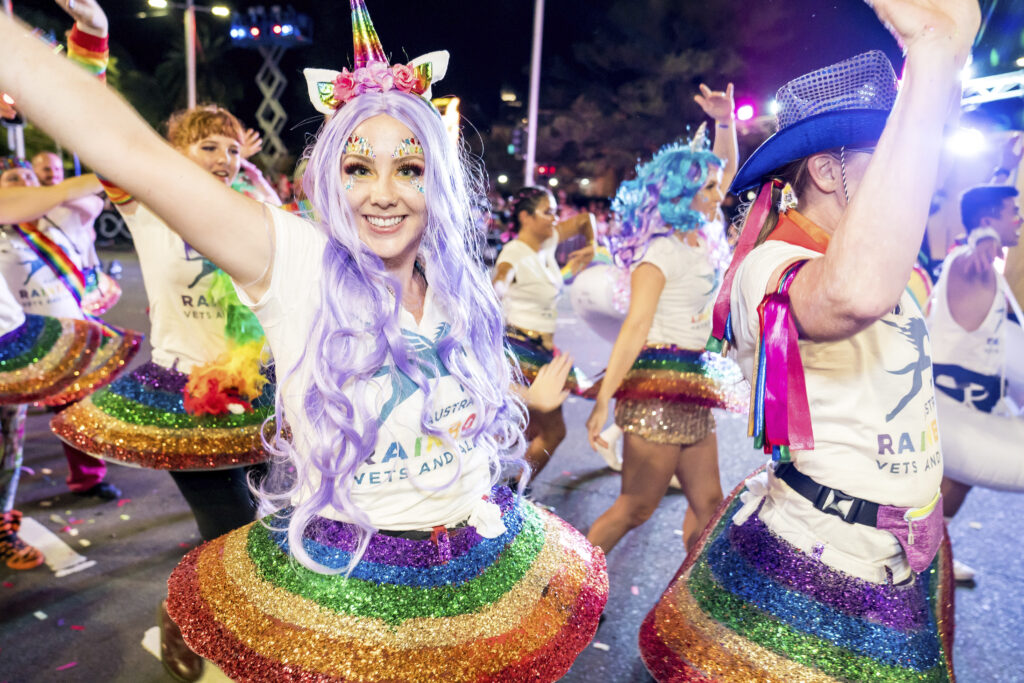
It’s not surprising, but after two or three years of canceled festivities, LGBTQ+ travelers enjoy traveling for queer events, and that includes traveling abroad for Pride festivals. For many queer people, going abroad to take part in Pride parades and parties is a major event in the annual calendar, and an excuse to combine a vacation with a fun, authentic time with friends. It’s also a great way to meet new people, be more free to express ourselves, and experience cities at their wildest!
With “Pride Power” back and more people identifying as LGBTQ+ around the world – as well as the rise in queer allies who want to take part – the numbers of people traveling for Pride will continue to increase in years to come.
Community Getaways
In years to come, LGBTQ+ travelers will embrace more vacations together. Bringing groups of like-minded strangers together for themed group trips will continue to be a way for queer folx to make friends and see the world. Over the coming years, increasing numbers of queer people will want to put themselves in real-life situations where they can meet new people – be it music festivals such as Might Hoopla in London, nightclubs and bars, or “Community Getaways” – a new kind of group travel experience curated just for the LGBTQ+ community. You may have seen this in the form of gay cruises or gay resorts, but as people want to break out of these “safe spaces,” there will be demand for more intrepid journeys with strangers who will (hopefully) become fast friends. It’s an opportunity for queer entrepreneurs!
Limelight Gaycations

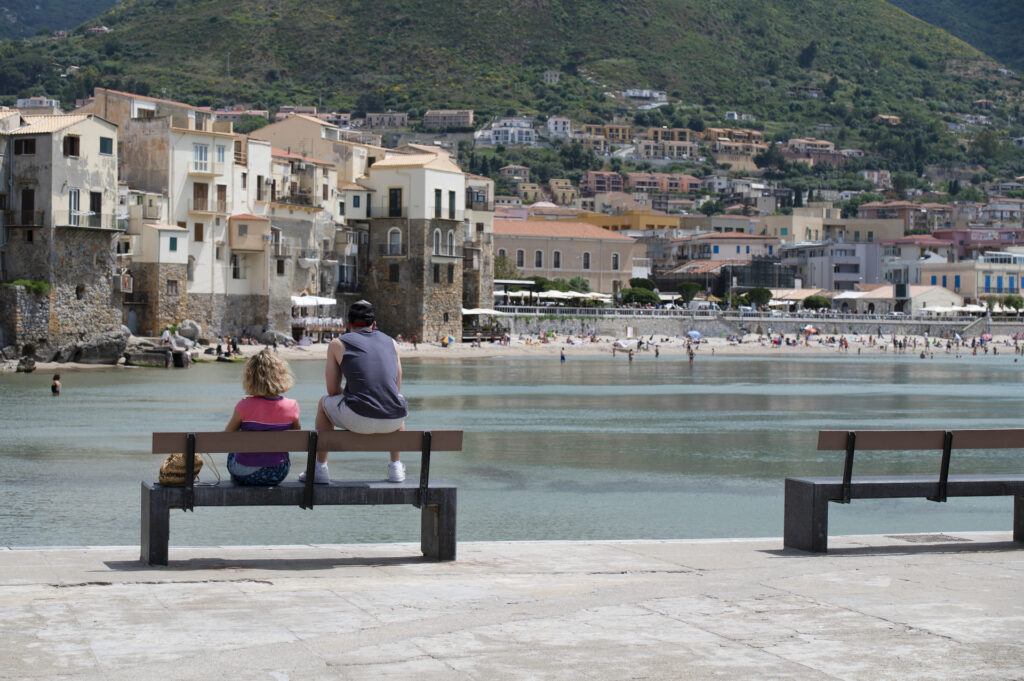
LGBTQ+ travelers are drawing on queer movies and TV shows, which can be more powerful than social media, that inspire them to travel to the places where they are filmed. According to a 2023 American Express survey of 3,000 travelers from Australia, Canada, India, Japan, Mexico, the UK, and the US, 64% of respondents said they made travel plans or were inspired to visit a specific country or destination after it was featured on a TV show, news source, or film.
For the queer community, “Limelight Gaycations” will be particularly in demand, especially as there is so much more positive queer content appearing on screens. A real-life example is the TV series White Lotus, known for its cast of camp and queer characters. Season two was filmed in Sicily at the San Domenico Palace, Taormina, a Four Seasons hotel, where it experienced what’s called “The White Lotus Effect,” where hotel bookings exploded after the season aired in autumn 2022. So, there are high hopes for season three which is set in queer-friendly Thailand.
Polydays
Gone are the days of the travel industry thinking queer folx only travel as solo travelers or as couples. Polyamory – a form of ethical non-monogamy that sees individuals forming romantic connections with more than one partner at the same time – is on the rise. This means hotels and other travel providers need to set aside their assumptions about what modern relationships look like and hyper-personalize experiences for throuples. Although the trend is occurring among straight people too, the LGBTQ+ community is already ahead of the curve (for gay men, in particular, monogamy is typically less conventional).
When a throuple goes on holiday, or “Polydays,” the travel industry is already rethinking how to make travel experiences more welcoming. For example, Shangri-La the Shard hotel in London made its first throuple feel welcomed by arranging three sets of pillows on the bed and three robes hung in the wardrobe. It’s just the start of making it ‘normal’ protocol to create the perfect Polyday.
Gay-I Interfaces
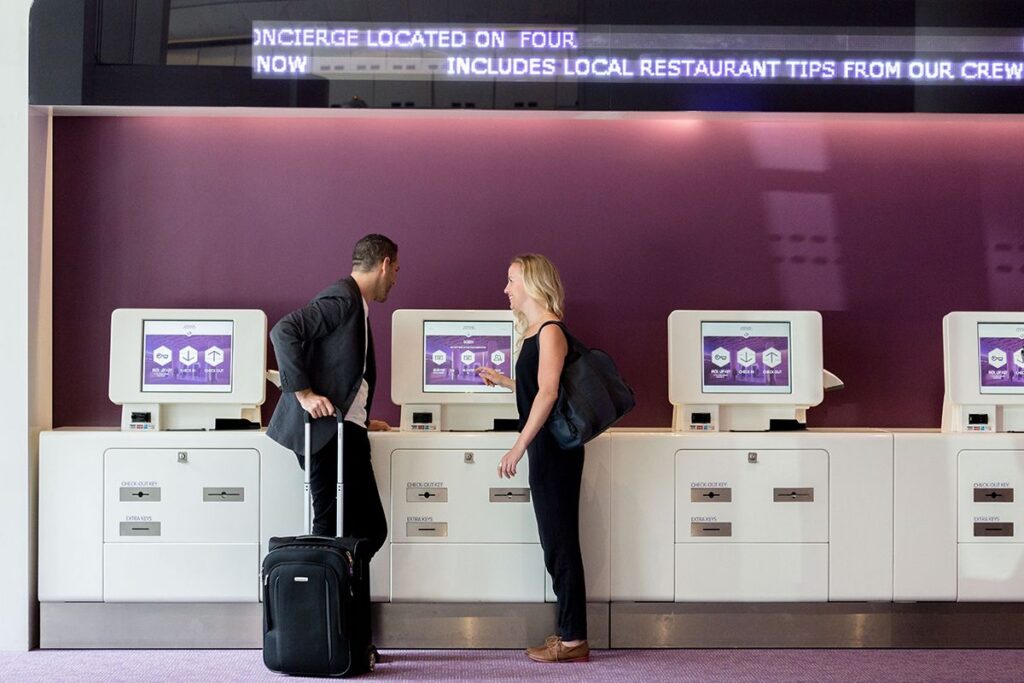
AI is estimated to offer a $28 billion opportunity for the travel industry. For queer travelers who want anonymity, interacting with machines will be preferable to humans. From border control and airport security to hotel check-ins and room service deliveries, for many queer travelers, having to interact with humans can be fraught with anxiety. What this means is there is a huge opportunity for the integration of automated checkpoints, terminals, and even robots that allow people to be served in a non-judgmental way by a machine.
Think in terms of Yotel, which only has automated check-in kiosks at its hotels and even has robot staff for in-room deliveries. However, new technology should be developed for passport control to ensure that trans travelers can be identified regardless of where they may be in their transition. In the future, artificial intelligence will provide the ability to hyper-personalize travel experiences, which is particularly for LGBTQ+ people and goes far beyond addressing guests with their correct pronouns (but that is a good start).
You can click here to download Globetrender’s full report, The Future of Queer Travel. Visit Globetrender’s website for more information.
Source: Globetrender

